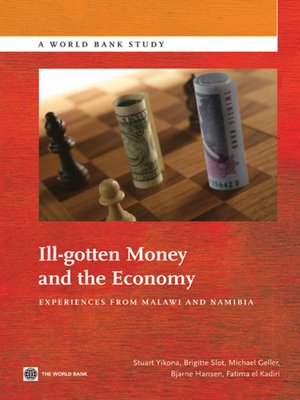Ill-Gotten Money and the Economy
ebook ∣ Experiences from Malawi and Namibia · World Bank Studies
By Stuart Yikona

Sign up to save your library
With an OverDrive account, you can save your favorite libraries for at-a-glance information about availability. Find out more about OverDrive accounts.
Find this title in Libby, the library reading app by OverDrive.



Search for a digital library with this title
Title found at these libraries:
| Library Name | Distance |
|---|---|
| Loading... |
Many developing countries have introduced policies to tackle ill-gotten money over the past years. Perception remains that such moves were more a result of international pressure being exercised than genuine ownership of such an agenda. There is not enough analysis and literature of how an anti-financial crime framework does (or does not) contribute to the development path of developing countries – or how best to use these tools in a developing country environment. This study was aimed at initially exploring the effects of ill-gotten money or proceeds of crime and anti-money laundering policies on economic development. The study focused on two developing countries: Malawi, (a low-income country) and Namibia (an upper-middle-income country). The starting point of this analysis is that anti-money laundering is essentially a tool to address criminal activities – and that, as a result, understanding criminal activities and how proceeds of crime impact development. The purpose of this study was: (i) to provide an initial answer to the question if and how measures to address proceeds of crime contributes to economic development; and (ii) to develop a framework that enable governments in developing countries to analyze the main sources of ill-gotten money and its effects on the economy.







